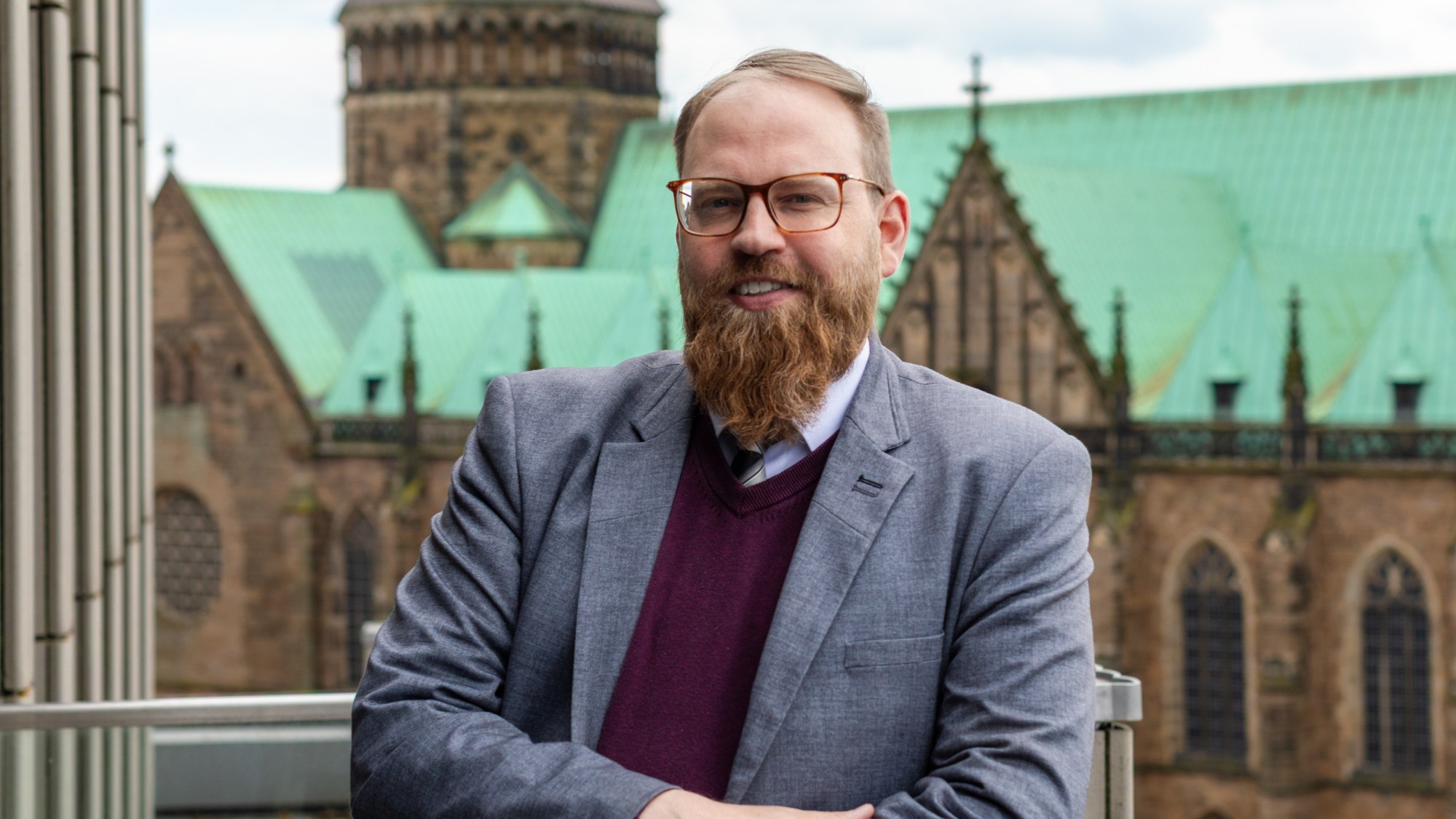
© Matej Meza / Universität Bremen
“Putting Theory into Practice Is Extremely Important”
How the University of Bremen’s Faculty of Law shares its knowledge with the community
Sharing knowledge is becoming increasingly important at universities. Beyond traditional teaching and research, a core objective of universities is to transfer knowledge and expertise for the public good, known as the “third mission.” Centrally located in the Forum at Domshof building, the Faculty of Law offers many opportunities for community interaction. Dean Sönke Gerhold talks to us about how these outreach activities take place.
What does the transfer of legal knowledge to society entail?
Legal knowledge, theory, and jurisprudence are shared and disseminated primarily through publications, particularly commentaries. These are then used by the judiciary, public administration, and the legal profession when searching for answers to legal questions. Even the legislature recognizes the expertise of legal scholars and often responds to demands and suggestions made by them. Legal scholars are regularly consulted as experts and evaluators, and accompany legislative projects and court proceedings. They often influence legal practice directly by serving as judges at the State Court of the Free Hanseatic City of Bremen or the Hanseatic Higher Regional Court of Bremen. Legal scholars also serve as legal representatives and as members of expert commissions and advisory boards. In addition, the faculty organizes advanced training courses, lectures, and panel discussions that are specifically designed to share legal knowledge.
How vital is it for society that legal scholars contribute their expertise at different levels?
Putting legal theory into practice is extremely important for society as the law is not a static entity. Given that laws are subject to constant change and the ripple effect legislative changes can have, an academic analysis is necessary to accompany these modifications in order to reach the intended objectives. In a democratic constitutional state, the executive, legislative, and judicial branches depend on academically sound expression of both concerns and approval regarding decisions of all kinds. This is the only way that law can meet rational requirements.
And what about the other way around? What effect do outreach activities and sharing of knowledge have on teaching and research?
Legal theory relies on input from legal practice to identify relevant research questions and prepare students for state law exams. A special feature of a law degree is that it is not just a university degree but a state-recognized qualification that prepares graduates for practical legal training. To achieve this, it makes sense to refer to practical examples in lectures and provide insights into future professional activities.
In what ways do outreach activities help students prepare for their professional careers?
The faculty offers special activities with a focus on practical application, such as the legal clinic for prison law. Participating students provide legal counseling to inmates under the supervision of a university lecturer. This allows them to apply the theoretical knowledge they have acquired in lectures. Similar programs will be expanded, such as the creation of a legal clinic for animal welfare law.